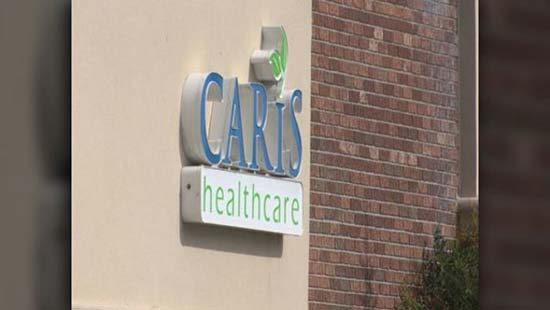DOJ: Caris ordered to pay $8.5M for admitting patients not terminally ill

JOHNSON CITY, TN (WJHL) - JOHNSON CITY, TN (WJHL) - An area hospice company agreed to pay millions of dollars to settle a false claims act lawsuit. It's an update to our Community Watchdog report back in 2016.
That lawsuit alleged Caris Healthcare used its patients to take millions of dollars from the government. It also accused the company of admitting patients who were not terminally ill to gain money from Medicare and Medicaid.
Prosecutors alleged the company did this to meet its goal for a number of patients.
Caris has a location in Bristol, Virginia.
US attorney Douglas Overbey announced Caris agreed to pay $8.5 million in the settlement.
On the settlement, Overbey said,
"...when hospices increase their bottom lines by billing taxpayers for unneeded services, they are diverting money from vulnerable, terminally-ill individuals."
Caris Healthcare issued the following statement on Monday:
Caris Healthcare announced today that it has reached a final agreement to resolve litigation brought by the U.S. Department of Justice (DOJ) in connection with a civil complaint filed by DOJ in October 2016.
Caris disputes the allegations made by DOJ in its complaint, and the settlement of the lawsuit does not involve any admission of liability or determination of any wrongdoing. Caris’ decision to enter the settlement allows Caris to avoid the cost and uncertainty of continued litigation and will enable the hospice provider to focus its resources on its mission of providing high-quality palliative end-of-life care to the thousands of patients it serves each year.
In recent years, litigation involving hospice providers has increasingly focused on the eligibility of patients to receive hospice services and often amounts to a second-guessing of the care provided to those patients, years after the fact. The settlement of the lawsuit brought under the False Claims Act (FCA) resolves these very sorts of allegations regarding care provided by Caris to a small fraction of patients between 2010 and 2013.
“Caris has the utmost confidence in its processes for determining patient eligibility for hospice and in the clinical judgment of those within our company on the frontlines of providing care to our patients,” said Norman McRae, founder and board member of Caris Healthcare.
CEO Paul Saylor thanked Caris employees for their continued dedication to the company’s mission and values.
“Caris remains committed to the highest level of compassionate care to our patients and families so that their loved ones are able to live out their final days with dignity,”Saylor said.
Under the terms of the settlement, Caris will pay the United States $8.5 million plus interest. The company, however, will not pay any statutory attorneys’ fees or expenses to the qui tam relator as part of the settlement.
The following is a news release form the Department of Justice:
Caris Healthcare, L.P. and its wholly-owned subsidiary, Caris Healthcare, LLC (“Caris Healthcare”), have agreed to resolve allegations that they violated the False Claims Act by knowingly submitting false claims, and knowingly retaining overpayments, for the care of patients who were ineligible for the Medicare hospice benefit because they were not terminally ill, the Department of Justice announced today.
Under the settlement agreement, Caris Healthcare, a for-profit hospice chain that operates in Tennessee, Virginia, and South Carolina, has agreed to pay $8.5 million.
The settlement resolves allegations that Caris Healthcare admitted and recertified patients for hospice care that were ineligible for the hospice benefit. The government’s complaint alleged that, in an effort to meet the aggressive admissions and census targets set by the company, Caris admitted patients whose medical records did not support a terminal prognosis.
The government’s complaint further alleged that when Caris was alerted to the ineligibility of these patients—via internal audits, concerns raised by its Chief Medical Officer, and recommendations of its nurse employees who actually examined the patients—Caris not only continued to submit hospice claims to Medicare for the patients, but also took no meaningful action to determine whether it had previously received improper payments for these and other patients that should have been returned to Medicare.
“Today’s settlement is an important reminder that compliance programs and activities cannot exist in name only. When a healthcare provider is put on notice that a patient is ineligible for a particular Medicare benefit or service, the healthcare provider cannot turn a blind eye to that information but, instead, must take reasonable steps to stop the improper conduct and to determine whether that conduct resulted in prior overpayments,”said Acting Assistant Attorney General Chad A. Readler of the Justice Department’s Civil Division.
“Moreover, when internal audit results or other information reveals the existence of a compliance issue that is not limited to a particular claim, as was the case here, it is incumbent on providers to exercise due diligence to determine how widespread the problem is and to return any overpayments.”
“It is completely unacceptable for providers to retain overpayments from Medicare after being put on notice of the likelihood of such overpayments. Under the law, providers must go beyond merely conducting audits and providing forums for employee concerns. Rather, when Medicare rule violations have been revealed, the provider must take meaningful action to correct them, including repaying Medicare for funds they improperly received. Such corrective actions are vital to the integrity of the Medicare program, and the U.S. Attorney’s Office will continue to use the resources available to it to ensure the government is properly reimbursed for funds it is owed,”said J. Douglas Overbey, U.S. Attorney for the Eastern District of Tennessee.
“We have significant expertise in investigating hospice fraud, as this part of the country unfortunately has seen more than its share of these schemes,”said Special Agent in Charge Derrick L. Jackson for the Office of Inspector General for the region including Tennessee.
“When hospices increase their bottom lines by billing taxpayers for unneeded services, they are diverting money from vulnerable, terminally-ill individuals. Worse yet, these patients may not be receiving care for medical needs that would otherwise be covered in a non-hospice setting.”
The settlement resolves allegations filed in a lawsuit by Barbara Hinkle, a registered nurse who formerly worked for Caris Healthcare, under the qui tam, or whistleblower, provisions of the False Claims Act, which permit private individuals to sue on behalf of the government for false claims and to share in any recovery. The Act also allows the government to intervene and take over the action, as it did in this case. The whistleblower’s share will be $1,402,500.
This matter was handled on behalf of the government by the U.S. Attorney’s Office for the Eastern District of Tennessee, the Justice Department’s Civil Division, and the Department of Health and Human Services Office of the Inspector General.
The case is captioned United States ex rel. Hinkle v. Caris Healthcare, L.P., et al., Case No. 3:14-cv-212 (E.D. Tenn.). The claims resolved by the settlement are allegations only, and there has been no determination of liability.

